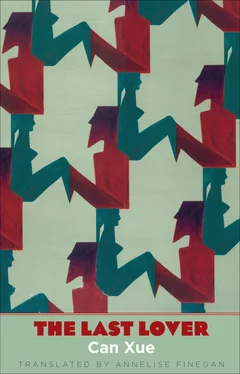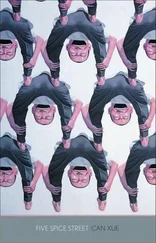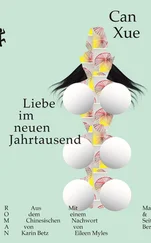Vincent furrowed his brow in disgust, which his adversary swiftly detected.
“You came here, but what use is it?” He stuck out his chin proudly. “You will never reach her heart because you don’t understand the kind of woman she is. Look, she has such worthy parents! Even our parrot looks down on you.”
“But I’ve already come here, and now I should leave?”
“Leave, this is the morality of people like you: you don’t stay anywhere long, only in hotels, you have no home. Poor Lisa, she must regret you.”
“I think Lisa has forgotten you.” Vincent pricked him with this sentence.
“Maybe. I’ve heard that people who leave here lose their memories.”
The servant was silent, thinking of his own problems. The parrot came to life again, walking back and forth in the smoke cloud with an apprehensive look.
Vincent walked over and opened the door of the stove. The parrot ran out all at once and jumped onto his shoulder. Now not only did it cease cursing, it also appeared attached to him, tightly holding his shoulder. Vincent sat in a reclining chair, and it jumped onto his knee. It looked serenely at him with its somewhat bleary old eyes. Vincent suddenly felt the bird’s charm, but he couldn’t say what sort of charm it was. He saw the servant looking himself over in the mirror. His mood seemed low, and he kept making grimaces in the mirror as if he were trying to adjust his mood.
“Vincent, Lisa has forgotten all about you.” The parrot imitated his voice.
“Are you lonely, Uncle?”
“Is Vincent lonely? If he’s lonely he should go practice his usury.”
Vincent listened to what it said and laughed out loud. At this the parrot laughed, too. The sound of the parrot’s laugh stopped Vincent’s short. It was like the laugh of a ghost in an ancient tomb. The parrot laughed and laughed, its wings held straight up, as if it were possessed. Vincent was going to push it down off his knee when the servant turned toward him, as though he could see into Vincent’s thoughts, with a cold, derisive expression; but the parrot suddenly shut its mouth.
“Why does it always say I’m a usurer?” Vincent asked the servant.
“Because in the gambling city we all have usury in our bones. Look at yourself, whoever makes you unhappy you push away. We look down on this kind of behavior.”
When he said this, the parrot also stared at Vincent, and its bleary eyes suddenly shot out a cold light. It seemed to see through to Vincent’s organs and its claws broke through Vincent’s pants, catching his flesh. Vincent felt he must say something right away, and what he said was “Joyner.”
The parrot was satisfied. It loosed its claws, jumped down onto the floor, and flew from the floor up onto the servant’s shoulder.
“Joyner is the gatekeeper to the gambling city. After you go back from here, even if you lose your memory completely, you will still remember how she looked resting on her broom, standing in a cloud of smoke,” the servant said.
“I wish for that, too.” Vincent agreed from his heart.
He looked out at the window. The smoke outside was already dispersing. The sky broke through with a color pleasing to the eyes and the heart, like the colors of the frigid morning of a clear day, but even more beautiful than this, a beauty that didn’t seem real. The gloom in Vincent’s heart quietly receded. He walked to the stairway beyond the door and heard a nightingale singing. How could there be a nightingale in this sunny sky? In the garden opposite the house, a red apple fell from a tree laden with fruit. The apple didn’t fall directly, but rather gradually drifted in the air before gently falling on the grass, where it lay like a miracle, giving off a red light.
“In fact, it’s the middle of the night,” the servant said lightly. He had also come outside. “Listen, your train is here.”
Vincent heard the sound of a train entering the station.
“So I need to hurry? But I still want to see Lisa’s parents.”
“Don’t worry, the train is stopped at the station waiting for you to make up your mind. But I don’t think you need to see Lisa’s parents. They are still underground, dreaming happy dreams. No need to deprive them of the happiness of their old age. Go see Joyner.”
Vincent thought it was certainly out of envy that the servant didn’t want him to see his father- and mother-in-law. However, now he wanted to see Joyner even more. He imagined the scene of himself and the young woman standing under that beautiful apple tree “spilling words from their hearts,” and he grew a little impatient. And so he took his leave of the servant and the parrot on the servant’s shoulder, and walked to Joyner’s hotel. In the distance the stone mountains had stopped belching smoke and looked solemn in appearance. Before, Lisa had told him, the gambling city was small, only as big as a stone in a slingshot, but the residents had numbered several hundred thousand. The street was so crowded with pedestrians they could all smell each other’s skin. In the casinos people were soaked in sweat. What led to the population’s disappearance and their collective evacuation? What hidden nucleus was everything he saw above-ground and underground revealing to him?
“Joyner, I love you.”
“Vincent, I love you, too. Ten years ago I fell in love with you. On that day you stood at the main gate of the Rose Clothing Company. My mother and I were shopping for clothes in the store opposite, and I took your measure carefully through the glass windows.”
“Nonsense, how old were you then?”
“I was as old then as I am now. You still haven’t realized, time stagnates here. So when I saw you this time, your aged appearance surprised me. That’s why I called you Grandfather.”
They spilled words from their hearts to each other. But the place they were standing was not under the apple tree. It was in a small room in the building where the cleaning tools were kept. The air in the room wasn’t good, with the smoke from the basement seeping through wide cracks in the doors. Vincent choked and coughed. He couldn’t open his eyes. When Joyner gently gripped his hand, an unfamiliar excitement rushed from his heart, a kind of feeling he’d never experienced with a woman’s body, one that eliminated his lust for sex. Was it because Joyner called him Grandfather that his lust for her changed in this way? No, that wasn’t it. The problem was with Joyner’s body. From the start, Vincent had felt that this beautiful woman had nothing directly to do with sex. But how could he not love a woman like her? She was so beautiful and so affectionate.
“Joyner, I don’t want to leave you, but I can’t stand the smoke clouds anymore, I can’t breathe. What should I do? I think if I leave your side now my life will become a stretch of darkness.”
“Oh, no, it won’t be like that. Go, Grandfather. If you leave you can always remember me. Go to where Lisa is, that is your normal life. But my life is also a normal life, don’t you think? The gamblers always lead happy lives. Production and consumption proceed underground, and for many, many years we have been content. Your palms are so hot. That time when I first saw you, I assumed your palms would be hot. You’re a warm-hearted man — how else could my younger sister Lisa fall in love with you?”
Vincent felt dizzy, that he had to go outside or he would fall to the floor. He wanted Joyner to come with him, but she was determined to stay inside the darkened room. He could only go out by himself. He walked into the living room, where there was no smoke, and had a fit of violent coughing. It seemed as though he would cough his organs inside out. When nausea overwhelmed him, nothing remained of his passion. He understood: he could not love within the poisonous smoke. This was why the parrot called him a usurer. How was this underground production and consumption mechanism operated? “Without entering the tiger’s den, you can’t catch the tiger’s cub”—and since he couldn’t breathe within the poisonous smoke, he had no chance of answering this question. Perhaps Lisa had agreed to his coming here in order to make him see where his own limitations lay.
Читать дальше












